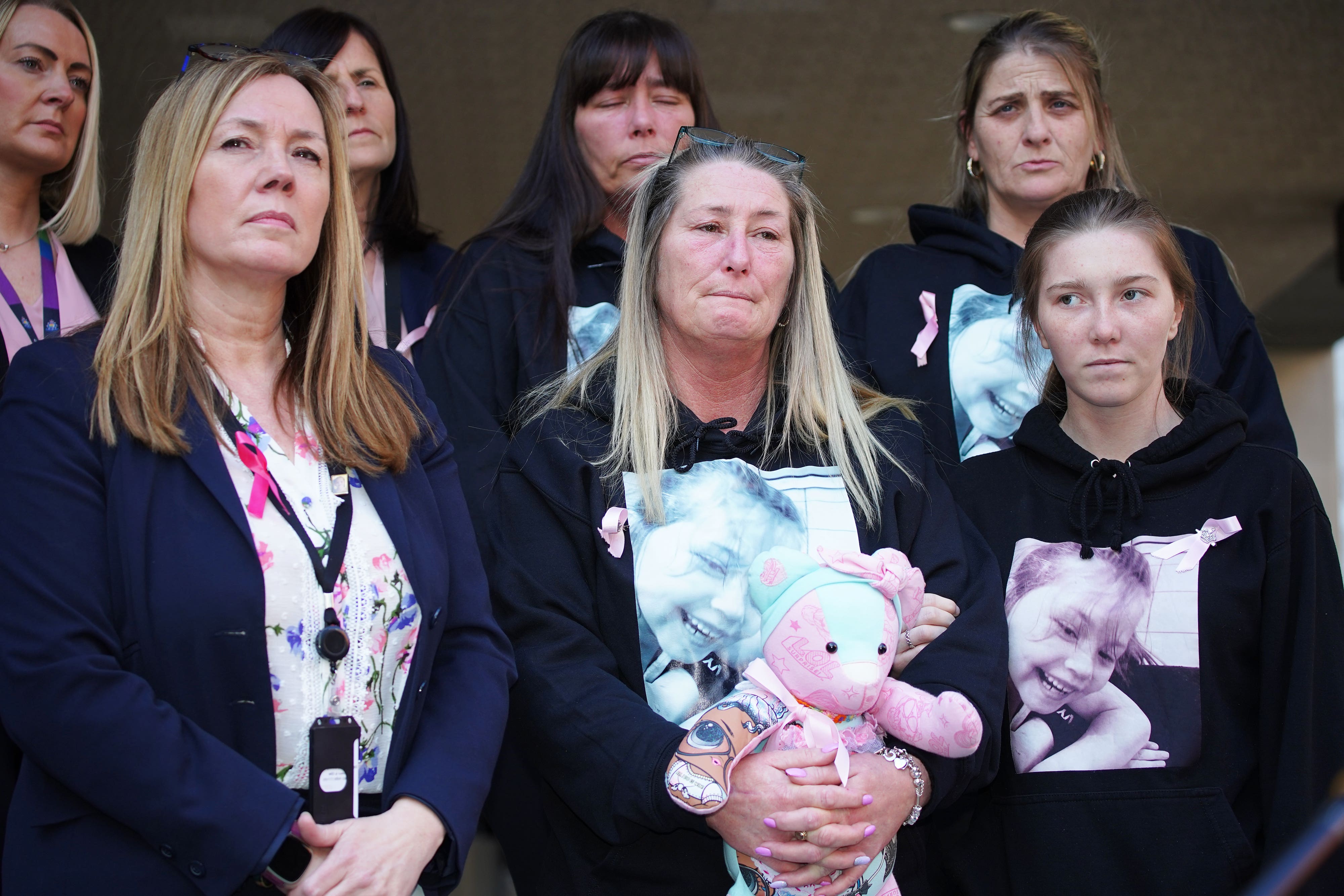Mother of nine-year-old shot dead in home shares final joyful hours with daughter before her murder
‘We had a really good time – the kids were sitting there laughing and joking’
Your support helps us to tell the story
From reproductive rights to climate change to Big Tech, The Independent is on the ground when the story is developing. Whether it's investigating the financials of Elon Musk's pro-Trump PAC or producing our latest documentary, 'The A Word', which shines a light on the American women fighting for reproductive rights, we know how important it is to parse out the facts from the messaging.
At such a critical moment in US history, we need reporters on the ground. Your donation allows us to keep sending journalists to speak to both sides of the story.
The Independent is trusted by Americans across the entire political spectrum. And unlike many other quality news outlets, we choose not to lock Americans out of our reporting and analysis with paywalls. We believe quality journalism should be available to everyone, paid for by those who can afford it.
Your support makes all the difference.The mother of a nine-year-old girl shot dead in her home in Liverpool has spoken of the joyful final hours she spent with her daughter before she was murdered by drug dealer Thomas Cashman.
In her first interview since Olivia Pratt-Korbel was gunned down in August last year, Cheryl Korbel told how she shared a meal with her daughter and some friends hours before the shooting that rocked the nation.
“We went to the Toby Carvery in Queens Drive for tea,” she said. “I went with my best friend and her daughter, who was Liv’s best friend. We had a really good time – the kids were sitting there laughing and joking.
“We had a roast but Liv was very picky, she didn’t eat meat. She’d have potatoes.”
Later that night Olivia would be killed as Cashman “relentlessly pursued” his intended target, convicted drug dealer Joesph Nee.
He fired shots at Ms Korbel’s home as Nee tried to enter following a chase on foot. A bullet went through the front door of the Liverpool home, hitting Ms Korbel’s wrist before striking Olivia in the chest and killing her.

In her interview with the Daily Mirror, Ms Korbel also vowed to campaign against gun crime and gangs in the city, as well as pushing to change the law forcing criminals to face the courts for sentencing.
Cashman, 34, refused to appear in the dock at Manchester Crown Court on 3 April when he was sentenced to life with a minimum of 42 years behind bars for Olivia’s murder.

His defence lawyer told the court Cashman was concerned the matter was “turning into a circus” and said he wished to be sentenced in his absence.
Ms Justice Yip said she regarded his lack of attendance as “disrespectful” to not only the court but also those interested in proceedings, including the family of the deceased.
The non-appearance of the murderer in court was branded a “disgrace” by Labour’s shadow justice secretary Steve Reed, who has previously called for new laws to make sure this cannot happen.
Campaigners and victims are calling on the justice secretary to close a loophole that allows criminals not to be present for their sentencing.

Dominic Raab has pledged to make non-attendance an aggravating factor in sentencing, which would give judges the power to hand out harsher punishment.
He is coming under pressure to fast-track the new laws in the aftermath of Olivia’s murder.
The aunt of Zara Aleena, who was murdered as she walked home last June, said criminals should have their prison terms extended if they refuse to face victims, adding that there are “other ways” to implement the proposals than dragging defendants kicking and screaming into the dock.
Ms Aleena’s killer Jordan McSweeney refused to attend his sentencing in February, something her family described as “a slap in the face”.
“Surely the judgment is part of the punishment ... we need to see that the process will deter further crime and how can the process feel like a punishment if the convict actually exercises their bit of power?” Farah Naz, aunt of Ms Aleena, told BBC Breakfast. “It’s the last bit of power that needs to be taken away, certainly in our eyes.
“I think there are other ways to make the convict come to face their judgment and that would be to add time to their sentencing or there can be other ways.”



